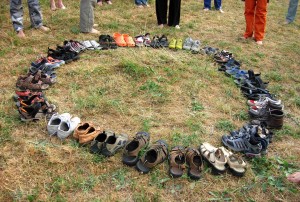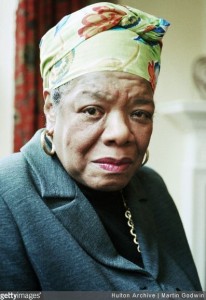 The professionals on a team are, generally speaking, the two attorneys, a neutral financial professional, a neutral child specialist, and a neutral divorce coach. Although the inclusion of financial and mental health professionals in the divorce process is nothing new, the manner in which they are used in the Collaborative process is unique. The attorneys’ roles are different in Collaboration, as well. While each spouse retains his or her own attorney, the attorneys work together to help the clients achieve an outcome that works for the entire family. The attorneys give legal advice to their individual clients, but more importantly, they help their clients realize what their interests and goals are. The objective of Collaboration is to get to a place where everyone is OK (a win-win) rather than a win-lose. The attorneys are trained in the Collaborative model and interest-based negotiation.
A financial neutral helps the divorcing couple with property division and cash flow. Financial neutrals are financial experts and are CPAs, CDFAs, and CFSs who are trained in the Collaborative process and who understand the legal process.
A child specialist is a neutral who helps the couple with creating a comprehensive and viable parenting plan. The child specialist is a therapist who is also trained in the Collaborative process. The child specialist is the voice of the children and not only helps the children during the divorce process, but helps parents help their children during this transition.
A divorce coach is also a therapist and a neutral in this process. The coach’s role is to the help the couple communicate better. It is important for each spouse to have a voice in this process and the coach can help with that. In high conflict cases, a coach helps the process move along more smoothly.
Although it seems like there are a lot of professionals involved in Collaboration, every professional has a specific role. In a non-collaborative case, the attorneys are acting as financial advisor, child specialist, and coach. And while attorneys can help with those pieces of the case, attorneys are not experts in those areas. In the Collaborative process, you get the best advice from the various professionals who are trained to help you reach a settlement. Consequently, a Collaborative team CAN help you avoid the divortex!
The professionals on a team are, generally speaking, the two attorneys, a neutral financial professional, a neutral child specialist, and a neutral divorce coach. Although the inclusion of financial and mental health professionals in the divorce process is nothing new, the manner in which they are used in the Collaborative process is unique. The attorneys’ roles are different in Collaboration, as well. While each spouse retains his or her own attorney, the attorneys work together to help the clients achieve an outcome that works for the entire family. The attorneys give legal advice to their individual clients, but more importantly, they help their clients realize what their interests and goals are. The objective of Collaboration is to get to a place where everyone is OK (a win-win) rather than a win-lose. The attorneys are trained in the Collaborative model and interest-based negotiation.
A financial neutral helps the divorcing couple with property division and cash flow. Financial neutrals are financial experts and are CPAs, CDFAs, and CFSs who are trained in the Collaborative process and who understand the legal process.
A child specialist is a neutral who helps the couple with creating a comprehensive and viable parenting plan. The child specialist is a therapist who is also trained in the Collaborative process. The child specialist is the voice of the children and not only helps the children during the divorce process, but helps parents help their children during this transition.
A divorce coach is also a therapist and a neutral in this process. The coach’s role is to the help the couple communicate better. It is important for each spouse to have a voice in this process and the coach can help with that. In high conflict cases, a coach helps the process move along more smoothly.
Although it seems like there are a lot of professionals involved in Collaboration, every professional has a specific role. In a non-collaborative case, the attorneys are acting as financial advisor, child specialist, and coach. And while attorneys can help with those pieces of the case, attorneys are not experts in those areas. In the Collaborative process, you get the best advice from the various professionals who are trained to help you reach a settlement. Consequently, a Collaborative team CAN help you avoid the divortex!
In parts 1 and 2, we defined vortex as:
1) a whirling mass of water or air that sucks everything near it towards its center;
2) a place or situation regarded as drawing into its center all that it surrounds, and hence, being inescapable or destructible.
As discussed in previous months, the “divortex” can be avoided by choosing the Collaborative Process. Prior articles describe what Collaboration is – it is a process that avoids court and may use a team of experts to help clients create the best settlement option possible. The professionals on a team are, generally speaking, the two attorneys, a neutral financial professional, a neutral child specialist, and a neutral divorce coach. Although the inclusion of financial and mental health professionals in the divorce process is nothing new, the manner in which they are used in the Collaborative process is unique. The attorneys’ roles are different in Collaboration, as well. While each spouse retains his or her own attorney, the attorneys work together to help the clients achieve an outcome that works for the entire family. The attorneys give legal advice to their individual clients, but more importantly, they help their clients realize what their interests and goals are. The objective of Collaboration is to get to a place where everyone is OK (a win-win) rather than a win-lose. The attorneys are trained in the Collaborative model and interest-based negotiation.
A financial neutral helps the divorcing couple with property division and cash flow. Financial neutrals are financial experts and are CPAs, CDFAs, and CFSs who are trained in the Collaborative process and who understand the legal process.
A child specialist is a neutral who helps the couple with creating a comprehensive and viable parenting plan. The child specialist is a therapist who is also trained in the Collaborative process. The child specialist is the voice of the children and not only helps the children during the divorce process, but helps parents help their children during this transition.
A divorce coach is also a therapist and a neutral in this process. The coach’s role is to the help the couple communicate better. It is important for each spouse to have a voice in this process and the coach can help with that. In high conflict cases, a coach helps the process move along more smoothly.
Although it seems like there are a lot of professionals involved in Collaboration, every professional has a specific role. In a non-collaborative case, the attorneys are acting as financial advisor, child specialist, and coach. And while attorneys can help with those pieces of the case, attorneys are not experts in those areas. In the Collaborative process, you get the best advice from the various professionals who are trained to help you reach a settlement. Consequently, a Collaborative team CAN help you avoid the divortex!
The professionals on a team are, generally speaking, the two attorneys, a neutral financial professional, a neutral child specialist, and a neutral divorce coach. Although the inclusion of financial and mental health professionals in the divorce process is nothing new, the manner in which they are used in the Collaborative process is unique. The attorneys’ roles are different in Collaboration, as well. While each spouse retains his or her own attorney, the attorneys work together to help the clients achieve an outcome that works for the entire family. The attorneys give legal advice to their individual clients, but more importantly, they help their clients realize what their interests and goals are. The objective of Collaboration is to get to a place where everyone is OK (a win-win) rather than a win-lose. The attorneys are trained in the Collaborative model and interest-based negotiation.
A financial neutral helps the divorcing couple with property division and cash flow. Financial neutrals are financial experts and are CPAs, CDFAs, and CFSs who are trained in the Collaborative process and who understand the legal process.
A child specialist is a neutral who helps the couple with creating a comprehensive and viable parenting plan. The child specialist is a therapist who is also trained in the Collaborative process. The child specialist is the voice of the children and not only helps the children during the divorce process, but helps parents help their children during this transition.
A divorce coach is also a therapist and a neutral in this process. The coach’s role is to the help the couple communicate better. It is important for each spouse to have a voice in this process and the coach can help with that. In high conflict cases, a coach helps the process move along more smoothly.
Although it seems like there are a lot of professionals involved in Collaboration, every professional has a specific role. In a non-collaborative case, the attorneys are acting as financial advisor, child specialist, and coach. And while attorneys can help with those pieces of the case, attorneys are not experts in those areas. In the Collaborative process, you get the best advice from the various professionals who are trained to help you reach a settlement. Consequently, a Collaborative team CAN help you avoid the divortex!
 The professionals on a team are, generally speaking, the two attorneys, a neutral financial professional, a neutral child specialist, and a neutral divorce coach. Although the inclusion of financial and mental health professionals in the divorce process is nothing new, the manner in which they are used in the Collaborative process is unique. The attorneys’ roles are different in Collaboration, as well. While each spouse retains his or her own attorney, the attorneys work together to help the clients achieve an outcome that works for the entire family. The attorneys give legal advice to their individual clients, but more importantly, they help their clients realize what their interests and goals are. The objective of Collaboration is to get to a place where everyone is OK (a win-win) rather than a win-lose. The attorneys are trained in the Collaborative model and interest-based negotiation.
A financial neutral helps the divorcing couple with property division and cash flow. Financial neutrals are financial experts and are CPAs, CDFAs, and CFSs who are trained in the Collaborative process and who understand the legal process.
A child specialist is a neutral who helps the couple with creating a comprehensive and viable parenting plan. The child specialist is a therapist who is also trained in the Collaborative process. The child specialist is the voice of the children and not only helps the children during the divorce process, but helps parents help their children during this transition.
A divorce coach is also a therapist and a neutral in this process. The coach’s role is to the help the couple communicate better. It is important for each spouse to have a voice in this process and the coach can help with that. In high conflict cases, a coach helps the process move along more smoothly.
Although it seems like there are a lot of professionals involved in Collaboration, every professional has a specific role. In a non-collaborative case, the attorneys are acting as financial advisor, child specialist, and coach. And while attorneys can help with those pieces of the case, attorneys are not experts in those areas. In the Collaborative process, you get the best advice from the various professionals who are trained to help you reach a settlement. Consequently, a Collaborative team CAN help you avoid the divortex!
The professionals on a team are, generally speaking, the two attorneys, a neutral financial professional, a neutral child specialist, and a neutral divorce coach. Although the inclusion of financial and mental health professionals in the divorce process is nothing new, the manner in which they are used in the Collaborative process is unique. The attorneys’ roles are different in Collaboration, as well. While each spouse retains his or her own attorney, the attorneys work together to help the clients achieve an outcome that works for the entire family. The attorneys give legal advice to their individual clients, but more importantly, they help their clients realize what their interests and goals are. The objective of Collaboration is to get to a place where everyone is OK (a win-win) rather than a win-lose. The attorneys are trained in the Collaborative model and interest-based negotiation.
A financial neutral helps the divorcing couple with property division and cash flow. Financial neutrals are financial experts and are CPAs, CDFAs, and CFSs who are trained in the Collaborative process and who understand the legal process.
A child specialist is a neutral who helps the couple with creating a comprehensive and viable parenting plan. The child specialist is a therapist who is also trained in the Collaborative process. The child specialist is the voice of the children and not only helps the children during the divorce process, but helps parents help their children during this transition.
A divorce coach is also a therapist and a neutral in this process. The coach’s role is to the help the couple communicate better. It is important for each spouse to have a voice in this process and the coach can help with that. In high conflict cases, a coach helps the process move along more smoothly.
Although it seems like there are a lot of professionals involved in Collaboration, every professional has a specific role. In a non-collaborative case, the attorneys are acting as financial advisor, child specialist, and coach. And while attorneys can help with those pieces of the case, attorneys are not experts in those areas. In the Collaborative process, you get the best advice from the various professionals who are trained to help you reach a settlement. Consequently, a Collaborative team CAN help you avoid the divortex! 







 When divorcing, whether one spouse stays in the family home is often a pivotal decision. For most, there are several considerations that go into deciding whether to sell or stay. The tax impact of selling the marital home is unlikely to be at the top of that list, but with home values on the rise, it is worth understanding.
The current tax rules are quite favorable to people realizing a gain on the sale of their home. The IRS allows each taxpayer to avoid paying capital gains tax on the first $250,000 of capital gain on the sale of one’s residence. That means that a taxpayer filing “single” could exempt the first $250,000. A couple filing “married filing jointly” can avoid paying taxes on $500,000 in gains. The capital gains tax on a $250,000 gain can range from $0 to about $75,000 so it is worth it for divorcing couple to make sure they cover this in their divorce arrangements.
To qualify for the exemption, the IRS requires that the home meet the principal residence test, which is based on ownership, use and timing. For ownership, you need to have lived in the home for at least 2 years, (24 full months) in the 5 years before the sale. These 24 months do not need to be continuous. The use criteria require that the home be your principal residence for those 24 months. This can be an issue if one spouse was employed in another city, where they kept a second residence. One spouse meets the use test, but the other does not. Finally, the timing criteria requires that you have not excluded the gain on the sale of another home in the past 2 years.
Tax law gives divorcing couples some leeway in these criteria. Transfer of home ownership between divorcing spouses is not considered to be a taxable event by the IRS. If ownership is not transferred during the divorce, detailing the home ownership arrangement in the divorce decree is key to minimizing taxes when selling the home later. An ex-spouse that continues to be an owner of the home but does not live there, can still use the exclusion if there is written documentation in the decree that lays out this arrangement.
Dealing with home decisions during the divorce can be a complex. Be sure that in your home decision analysis, you are clear on your tax implications! And keep in mind that cabins, vacation homes and investment real estate generally will not meet the principal residence test, so they may have tax consequences when sold.
For a comprehensive review of your personal situation, always consult with a tax or legal advisor. Neither Cetera Advisor Networks LLC nor any of its representatives may give legal or tax advice.
When divorcing, whether one spouse stays in the family home is often a pivotal decision. For most, there are several considerations that go into deciding whether to sell or stay. The tax impact of selling the marital home is unlikely to be at the top of that list, but with home values on the rise, it is worth understanding.
The current tax rules are quite favorable to people realizing a gain on the sale of their home. The IRS allows each taxpayer to avoid paying capital gains tax on the first $250,000 of capital gain on the sale of one’s residence. That means that a taxpayer filing “single” could exempt the first $250,000. A couple filing “married filing jointly” can avoid paying taxes on $500,000 in gains. The capital gains tax on a $250,000 gain can range from $0 to about $75,000 so it is worth it for divorcing couple to make sure they cover this in their divorce arrangements.
To qualify for the exemption, the IRS requires that the home meet the principal residence test, which is based on ownership, use and timing. For ownership, you need to have lived in the home for at least 2 years, (24 full months) in the 5 years before the sale. These 24 months do not need to be continuous. The use criteria require that the home be your principal residence for those 24 months. This can be an issue if one spouse was employed in another city, where they kept a second residence. One spouse meets the use test, but the other does not. Finally, the timing criteria requires that you have not excluded the gain on the sale of another home in the past 2 years.
Tax law gives divorcing couples some leeway in these criteria. Transfer of home ownership between divorcing spouses is not considered to be a taxable event by the IRS. If ownership is not transferred during the divorce, detailing the home ownership arrangement in the divorce decree is key to minimizing taxes when selling the home later. An ex-spouse that continues to be an owner of the home but does not live there, can still use the exclusion if there is written documentation in the decree that lays out this arrangement.
Dealing with home decisions during the divorce can be a complex. Be sure that in your home decision analysis, you are clear on your tax implications! And keep in mind that cabins, vacation homes and investment real estate generally will not meet the principal residence test, so they may have tax consequences when sold.
For a comprehensive review of your personal situation, always consult with a tax or legal advisor. Neither Cetera Advisor Networks LLC nor any of its representatives may give legal or tax advice. 
